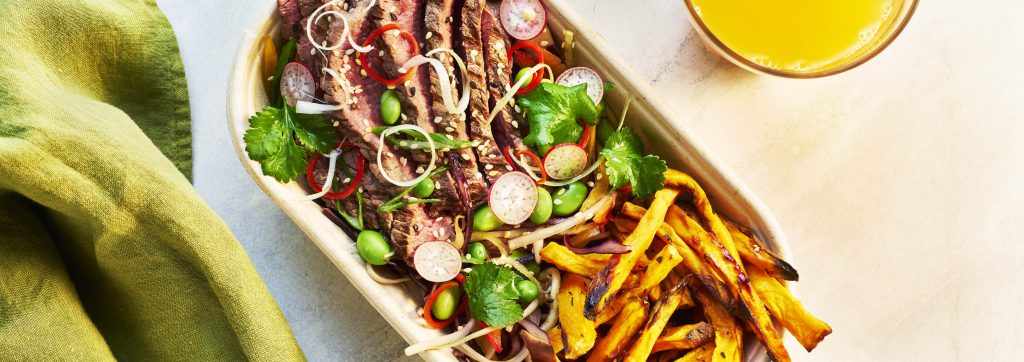

Summer is almost here, and it’s no secret that we all like to feel good in our summer outfits.
Online you can find heaps of information on the ‘quickest and best’ ways to get that summer body ready, but what works and what doesn’t?
We’ve delved deeper into some of the latest trending fad diets to explain why despite their promises of near-instant results, they might not be the healthiest or most sustainable way forward.
The ketogenic diet
On a keto diet, most of your calories come from fat. There are variations on how the diet might be implemented, but on a typical ketogenic diet, about 75-80% of your calories come from fat and the rest from carbohydrates and protein.
The main energy source for the body is carbohydrate. When you are low on carbs, the body will start to convert fat into energy. This metabolic state is called ‘Ketosis’.
Though many people will lose a considerable amount of weight in a short period of time, this diet also has some negative side effects.
As this diet is so low in carbs, it’s also restricting the intake of many healthy foods which the body requires to function optimally. Your intake of fruit and veggies, which are important for fibre, vitamins and minerals, will be very limited. Therefore being on a ketogenic diet for a long time can lead to constipation and micronutrient deficiencies.
Ketosis puts the body in a state of survival/starvation mode, so it’s not surprising that it’s not a sustainable diet for the long term. When you build up too many ketones in your body, your blood becomes very acidic which can be dangerous, and lead to dehydration and kidney malfunction.
The alkaline diet
The theory behind the alkaline diet is to maintain the ideal internal body pH balance. The body would benefit from replacing more acidic foods with more alkaline ones. In practice, this would involve swapping meat, sugar and processed food for food such as fruits, vegetables, tofu, nuts, seeds, and legumes. The result is weight loss, plus a decreased risk of arthritis and cancer.
I’m definitely one to support a diet featuring an abundance of plant-based foods however, our body is designed to regulate the pH automatically. More research needs to be done to see if certain foods have an impact on the pH of our body and furthermore improve health.
Whole30
The whole30 is a 30-day diet that is designed to slowly reintroduce eliminated items back into your diet. The goal is to understand what sensitivities you might have with certain foods.
The plan has many restrictions and this can make it very hard to stick to. Unhealthy food like alcohol, sugar and processed foods get restricted but also things like legumes, dairy and grains are forbidden.
Eliminating so many food groups is certainly not sustainable but can also lead to an unhealthy relationship with your body, disordered eating behaviour, and an obsession with the number on the scales rather than focussing on the goals you initially set out to achieve.
Juice Cleanse
Juice cleanses are one of the most popular ‘quick fix’ diets which promise rapid weight loss. During the cleanse, which could last from 3 to 10 days, you only consume juices made from fruits and veggies in an attempt to lose weight and ‘detoxify’ the body.
People often notice a drop in weight, but this result is only temporary as you are losing body water and not fat mass.
Juices will give you a boost in vitamins and minerals, but by juicing fruits and vegetables, you remove their fibre content, which is essential for maintaining a healthy digestive system. On top of that, despite offering a high micronutrient intake, juice cleanses tend to be lacking in some essential macronutrients – protein and fats which may cause you to suffer headaches, lightheadedness, dizziness, fatigue, diarrhoea, depression and irritability.
This will often result in you getting cravings and therefore you return quickly to your old habits with the addition of more sugary and greasy foods.
Instead of trying these summer fads, aim to implement healthy, long term, sustainable habits, both in terms of your nutrition and physical activity. Eat real food and don’t entirely restrict yourself from eating specific food groups. Start by setting yourself realistic, achievable goals and make yourself accountable. Give our ‘Fat Loss – 8 steps’ blog a read for some top tips to get you started!

